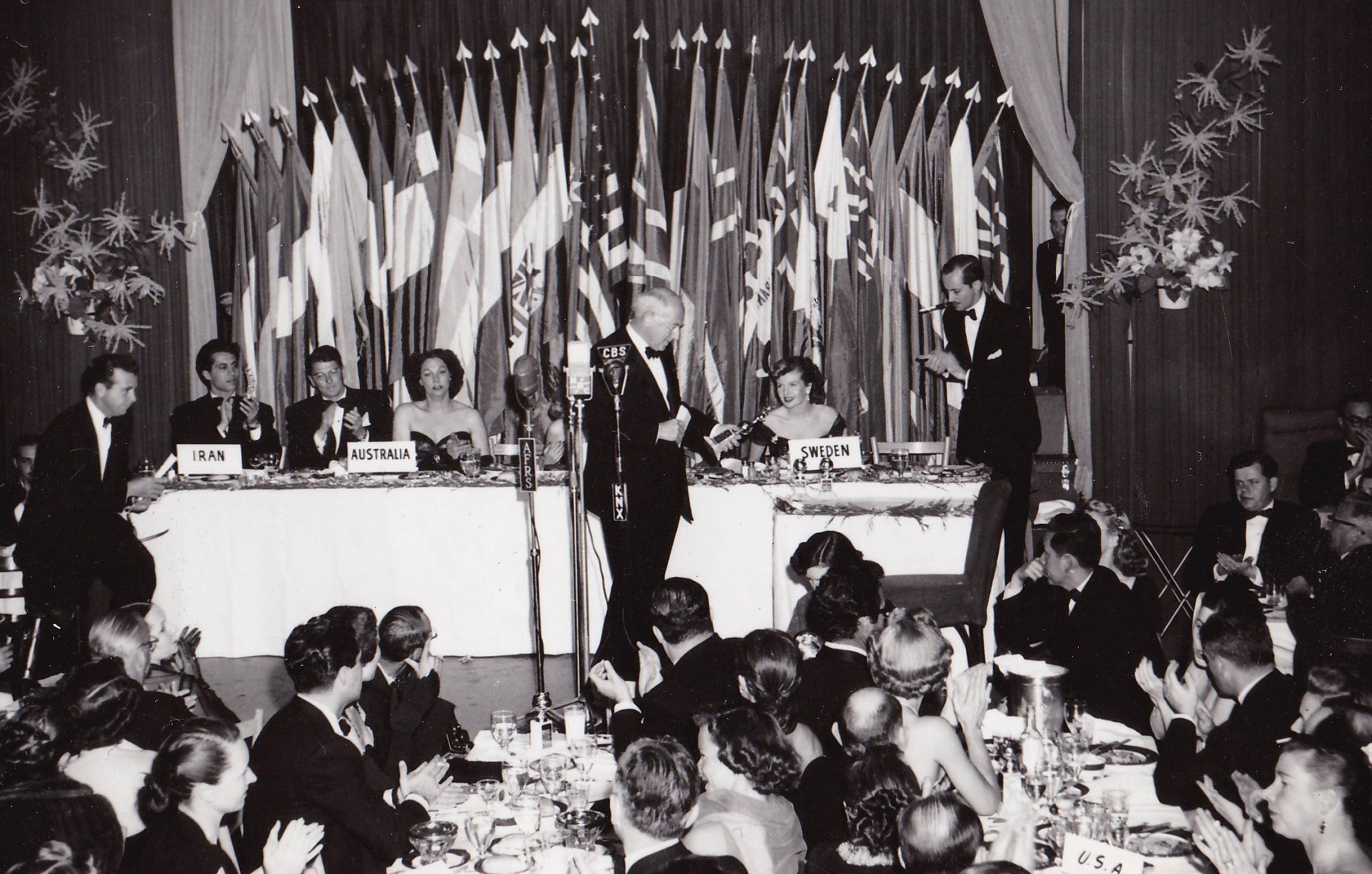
- Golden Globe Awards
1952: The Advent of the Cecil B. DeMille Award

The Golden Globe Awards, in their early years, were a less formal affair than they have been since 1971 when they started being hosted in the International Ballroom of the Beverly Hilton Hotel. In 1952, the event was held for the second straight year at Ciro’s, a popular nightclub on the Sunset Strip.
The 1952 Golden Globes marked a very important milestone, though. In addition to being the first year in which a Best Motion Picture Musical or Comedy Golden Globe was awarded alongside Best Motion Picture Drama, at the February 21 ceremony, a special award was instituted and named after Cecil B. deMille “for extraordinary achievements in the motion picture industry,” with the director himself being honored as its first recipient.
Dick Powell served as master of ceremonies, Corinne Calvert was Miss Golden Globe, and Ronald Reagan, then President of the Screen Actors Guild, delivered the presentation speech.
In 1952, Cecil Blount deMille, at 70 years old, was a legendary Hollywood filmmaker whose impressive career straddled eras that saw a massive change. He got his start producing and directing silent epics such as The Squaw Man (1914), Male and Female (1919), The Ten Commandments (1923), and The King of Kings (1927), before transitioning to talkies like The Sign of the Cross (1932), Cleopatra (1934), The Plainsman (1936), Union Pacific (1939), Samson and Delilah (1949), and more.
DeMille had already completed shooting and editing The Greatest Show on Earth</a (1952), which would go on the following year to win Golden Globes for Best Director and Best Motion Picture Drama, as well as an Academy Award for Best Picture. His last film would be The Ten Commandments</a (1956), starring Charlton Heston and Yul Brynner.
In thank-you letters both before and after the Golden Globe Awards to Hollywood Foreign Correspondents Association President Dianne Carrere, the filmmaker expressed considerable gratitude.
On February 7, he wrote: “The decision by the Hollywood Foreign Correspondents Association to establish an institutional award bearing my name is a great honor that I accept with pleasure and humility. In view of the increasing importance of international relations in the motion picture industry, I feel that your association is helping immeasurably to bring better understanding between people of all nations — a task for which the medium of motion pictures is so well suited.”
Less than three weeks later, on February 27, deMille wrote: “The spirit of goodwill and good humor which was shown throughout the evening speaks well for the warm international relationship enjoyed in our industry.”

